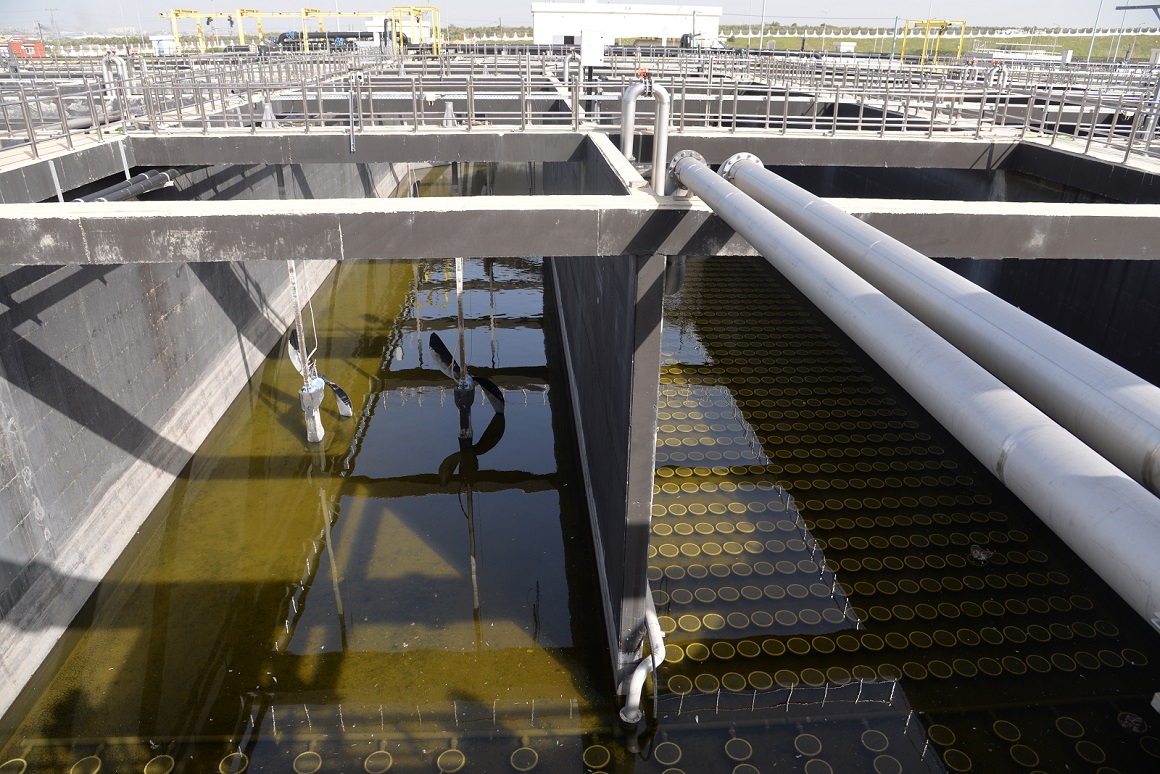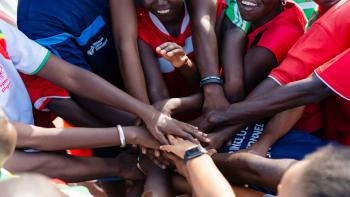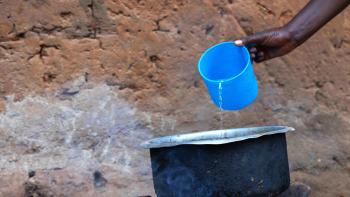In 2005, in response to the dangers to populations around the lagoons in Beit Lahia, which received 4 times their capacity of wastewater, the international community (World Bank, AFD, Belgian and Swedish cooperation and European Commission) took action to support the Palestinian Authority for a heavy investment program.
The objective? Build a sustainable sanitation system with a capacity to treat the wastewater discharged by around 360,000 residents, i.e. some 36,000 m3 a day.
The system is made up of pumping stations, a wastewater treatment plant and 9 infiltration basins. The entire system reduces risks of groundwater contamination, but also of the collapse of sand barriers at the lagoons in Beit Lahia. These landslides are dramatic for the 10,000 or so people living downstream: for example, they led to overflows and the death of 5 people in 2007.

Mobilization of all
The difficult political context – the Israeli blockade, which makes the entry of equipment and materials unpredictable, the 2008 war, Operation Protective Edge in 2014 – along with the energy crisis and the economic difficulties of contractors, did, however, lead to delays and cost overruns. But thanks to the mobilization of all, and particularly France via a USD 19.2m grant from AFD, the Palestinian Authority succeeded in finalizing this USD 73m project.
However, the adventure is not over: to be fully operational, the facility will need energy (3 MW as of now and 6 MW in the long term). In the context of the energy crisis which Gaza is experiencing, this supply poses a challenge which calls for the continuous involvement of all stakeholders.
Optimization of uses
The system will also be developed and improved. Thanks to new support from the World Bank, AFD and possibly the Green Climate Fund, the Palestinian Authority has planned a groundwater pumping system 500 meters from the infiltration basins. The treated water infiltrated into the groundwater will irrigate surrounding farmland, which will contribute to improving the productivity of 1,000 farms and therefore the incomes of the families concerned.
The additional 3 MW required by this system will be partly supplied by the installation of solar panels, which will reduce Gaza’s energy dependence.














